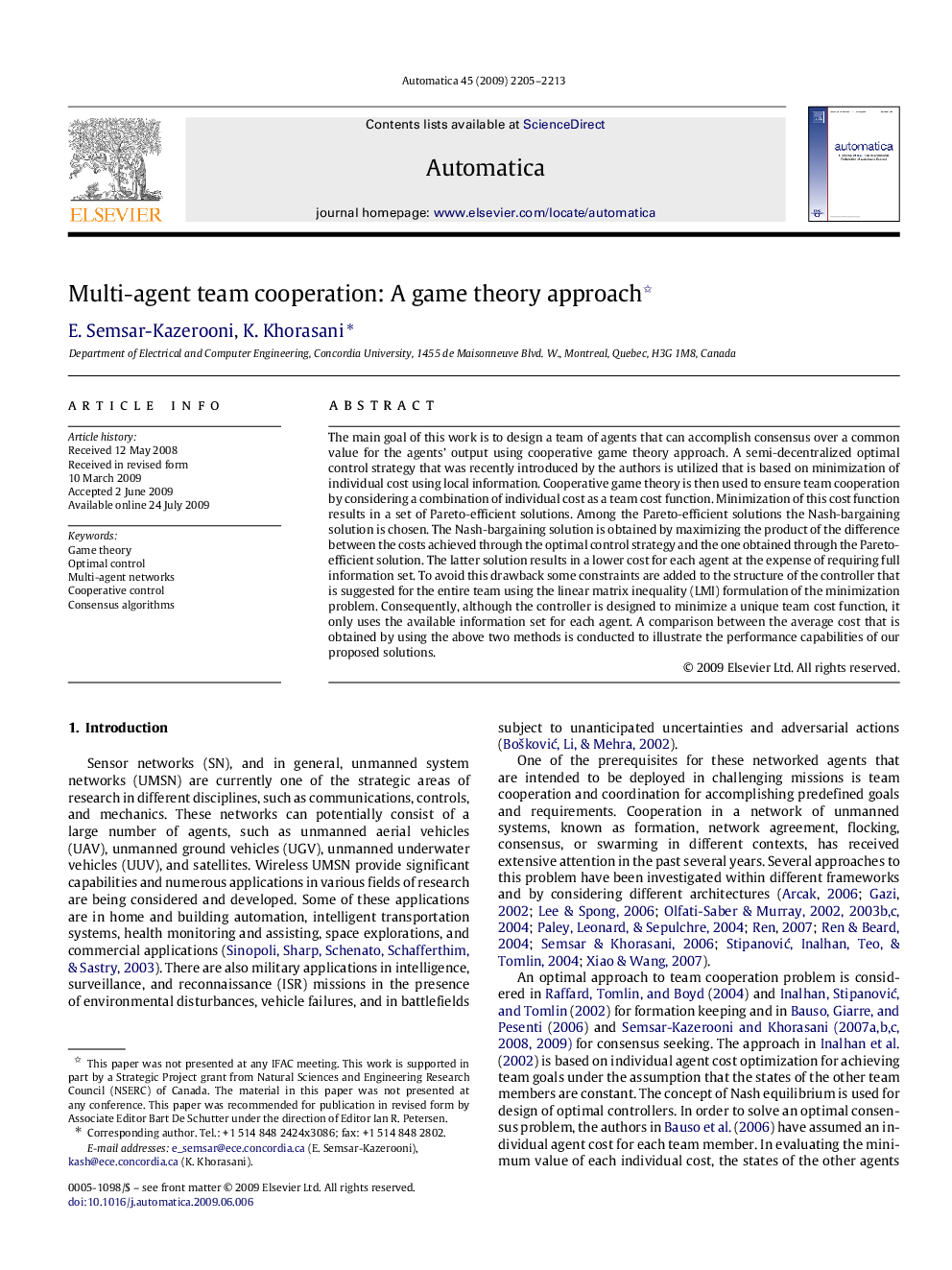| Article ID | Journal | Published Year | Pages | File Type |
|---|---|---|---|---|
| 697889 | Automatica | 2009 | 9 Pages |
The main goal of this work is to design a team of agents that can accomplish consensus over a common value for the agents’ output using cooperative game theory approach. A semi-decentralized optimal control strategy that was recently introduced by the authors is utilized that is based on minimization of individual cost using local information. Cooperative game theory is then used to ensure team cooperation by considering a combination of individual cost as a team cost function. Minimization of this cost function results in a set of Pareto-efficient solutions. Among the Pareto-efficient solutions the Nash-bargaining solution is chosen. The Nash-bargaining solution is obtained by maximizing the product of the difference between the costs achieved through the optimal control strategy and the one obtained through the Pareto-efficient solution. The latter solution results in a lower cost for each agent at the expense of requiring full information set. To avoid this drawback some constraints are added to the structure of the controller that is suggested for the entire team using the linear matrix inequality (LMI) formulation of the minimization problem. Consequently, although the controller is designed to minimize a unique team cost function, it only uses the available information set for each agent. A comparison between the average cost that is obtained by using the above two methods is conducted to illustrate the performance capabilities of our proposed solutions.
